
Culture
22:36, 28-Oct-2017
Jia Zhangke and PYIFF: Making indie films popular
By Li Bin and Wang Jia
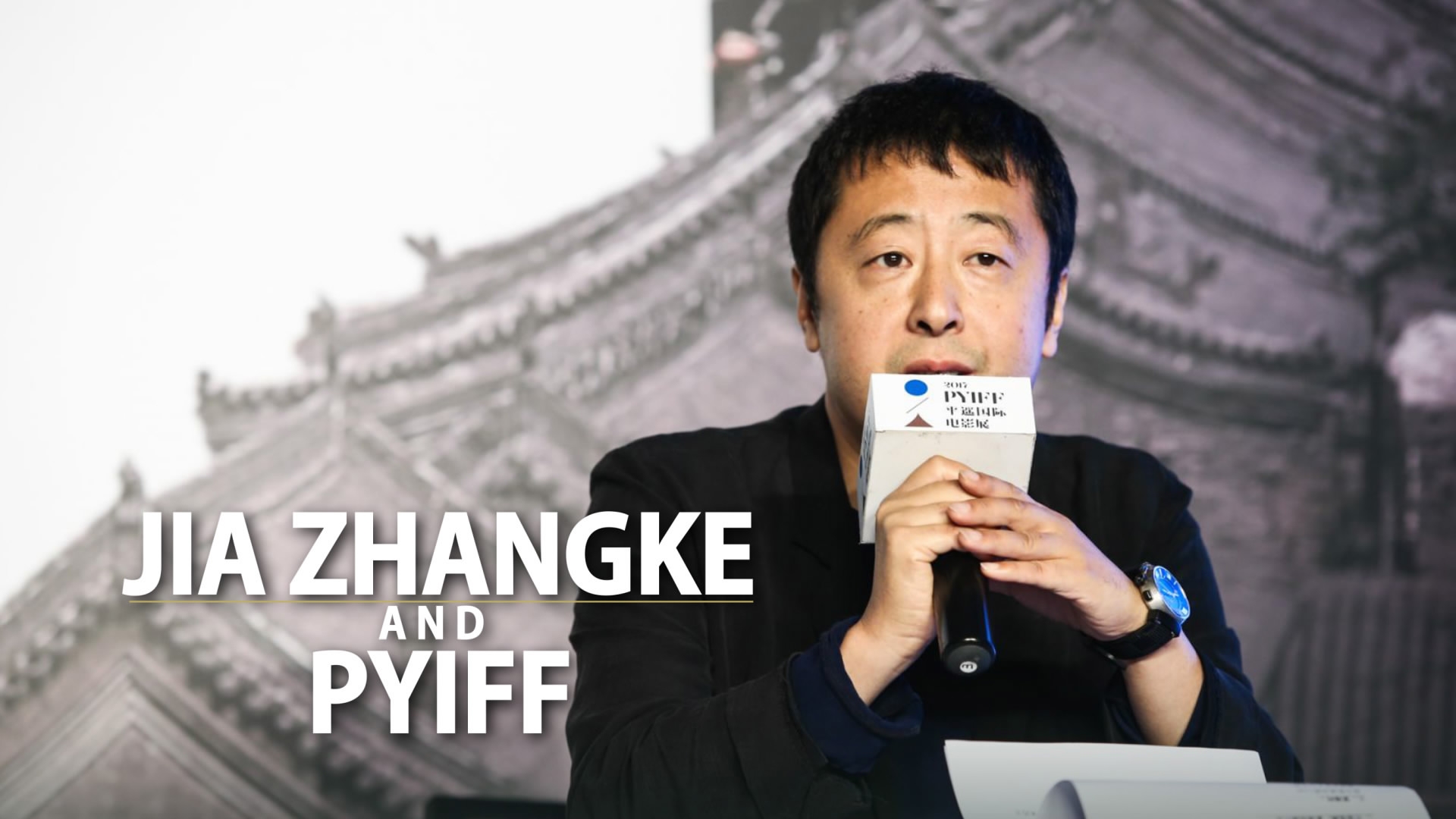
The inaugural Pingyao Crouching Tiger Hidden Dragon International Film Festival (PYIFF) – named after Ang Lee’s Oscar-winning Kung Fu movie “Crouching Tiger, Hidden Dragon” – kicked off on Saturday in the historic city Pingyao, in China’s Shanxi Province.
China’s prominent auteur film director Jia Zhangke, also a Shanxi native, teamed up with former Venice and Rome festival head Marco Mueller to launch the first international film festival into the area.
With an aim of starting off a dialog between non-western and western films and to provide a venue for movies that are easily overlooked by Chinese audience, the festival sets up a competition, named Crouching Tiger, that will put a focus on new directors. A sidebar on genre cinema, paying attention to films from all over the world, will be named Hidden Dragon.
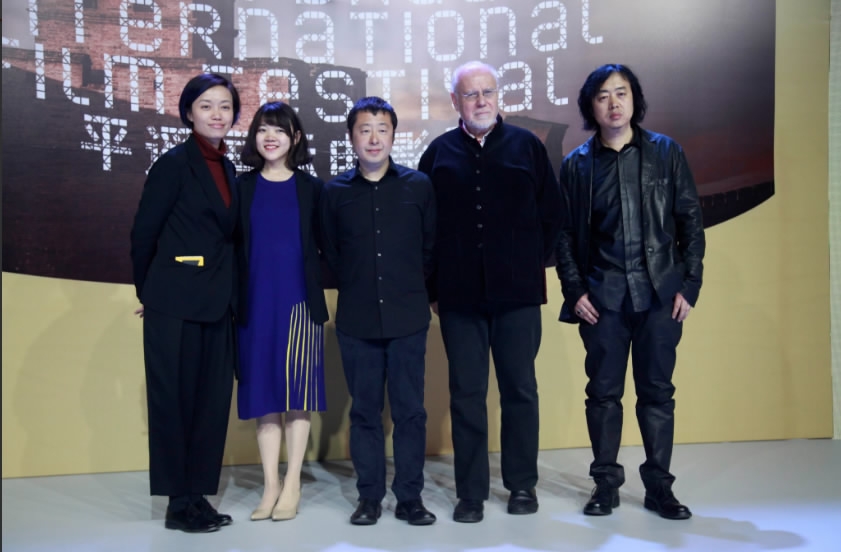
Jia Zhangke (3rd from L) and Marco Mueller (2rd from R) at the festival /Photo via Twitter
Jia Zhangke (3rd from L) and Marco Mueller (2rd from R) at the festival /Photo via Twitter
A dream behind the festival
At present, China has five major authoritative Chinese-language film awards, namely, the Taipei Golden Horse Film Festival along with Hong Kong Film Awards, Beijing International Film Festival, Shanghai International Film Festival, and the Golden Rooster and Hundred Flowers Awards, also one of the most prestigious film awards and among the most respected in Chinese-speaking world.
As these films festivals are held either by the Chinese government or the film associations, which made the film reviewers are selected from some professionals. There’s no surprise that cinema film forms a fixed taste. Jia wants to bring more fresh voices into film industry.
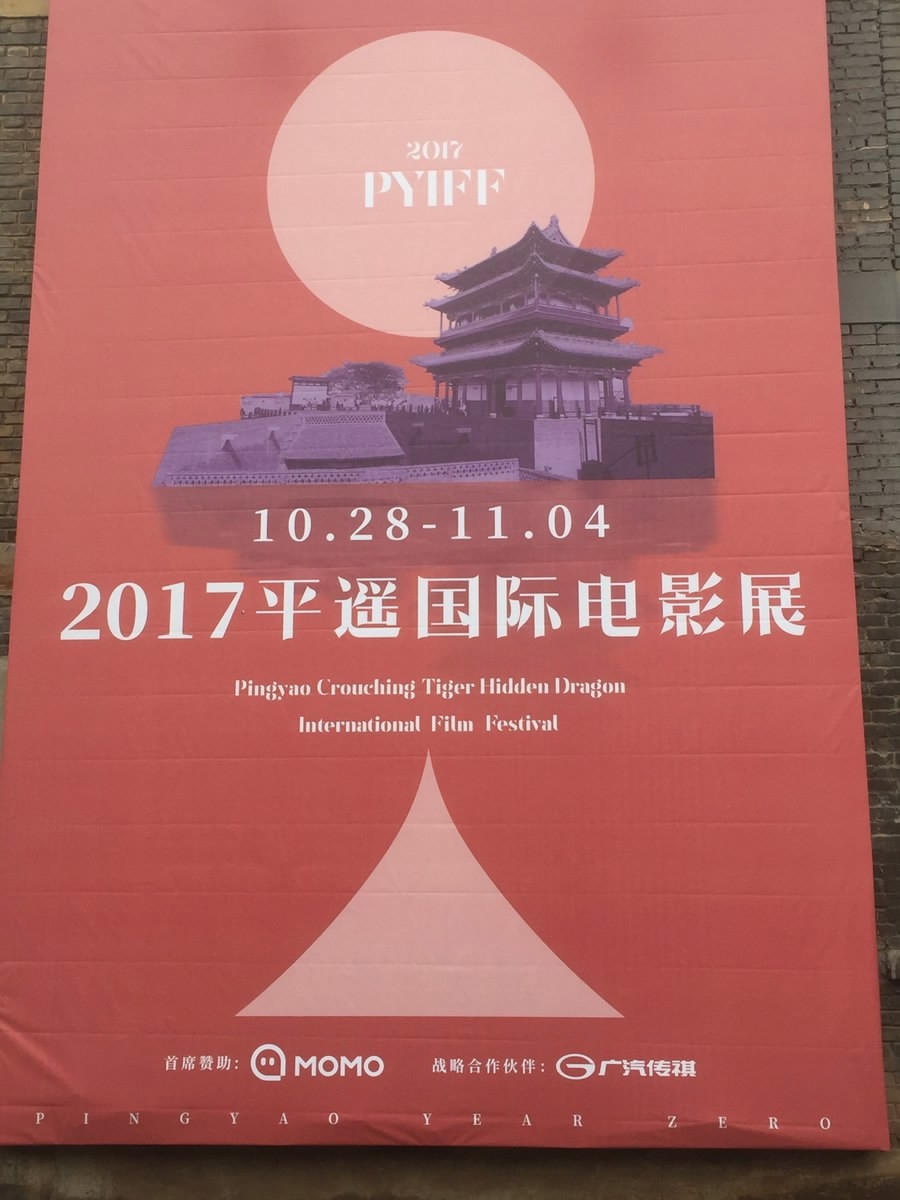
Photo via Twitter
Photo via Twitter
As Jia Zhangke once mentioned in an interview, “In fact, most of films we are currently watching mainly consist of US and Europe mainstream films. There are a lot of creative, dynamic films out there that have no chance of public views, which is a huge cultural loss.”
The PYIFF differs from most of China’s film festivals by putting a focus on non-western movies. When most film festivals aim to squeeze into big cities to steal the spotlight, Jia hopes Pingyao could become a starting point so that cultural resources could flow down to small cities, to the grassroot level.
With many film festivals in house, China has nothing that can be compared with the “Big Three” – Venice Film Festival, Cannes Film Festival and Berlin International Film Festival.
Jia has his ambition, turning Pingyao into an international cultural symbol, to find a foothold in the international film industry.
This is undoubtedly a good sign, as the indie films that cannot be seen in cinemas now have an additional channel to show their faces.
The festival’s curators have focused on arthouse-style movies, selecting some 40-plus titles from all over the world.
Chinese director Feng Xiaogang’s "Youth", known as "Fang Hua" in Chinese, will be screening as the opening film of the Festival.
Other titles in the PYIFF line-up include Cannes Palme d’Or winner "The Square", Richard Linklater’s "Last Flag Flying" and Takeshi Kitano’s "Outrage Coda", marking the Japanese director’s first film to be screened officially in China.
'Narrator walking parallel with the era'
"I always like to say I'm a director with 'agricultural background,' a phrase I prefer to use…I myself have a faith that is I'm not willing to cut my connection with the land," Jia Zhangke once said.
Calling himself a "narrator walking parallel with the era," Jia's works can be categorized into feature films focusing on people living in the fast-developing China and documentaries recording the past.
The 47-year-old is seen as a leading figure of China's "Sixth Generation" of film directors. He likes to set his cameras on rural settings and common folk that are so typical that you can instantly relate to them.
His films examine the impact of China's economic rush and globalization on the individuals at the grassroots level – migrant workers, small-time criminals or wayward youths, which makes him stand out from his peers.
Whether his films are set in small towns surrounded by vast open spaces or within the enclosed working environments of factories or theme parks, Jia's compositions have a claustrophobic, even alienating quality.
The director has never relied on A-list stars to promote his films. Instead, many of the leading actors in his films are unknown actors or even non-professionals so as to reach authenticity.
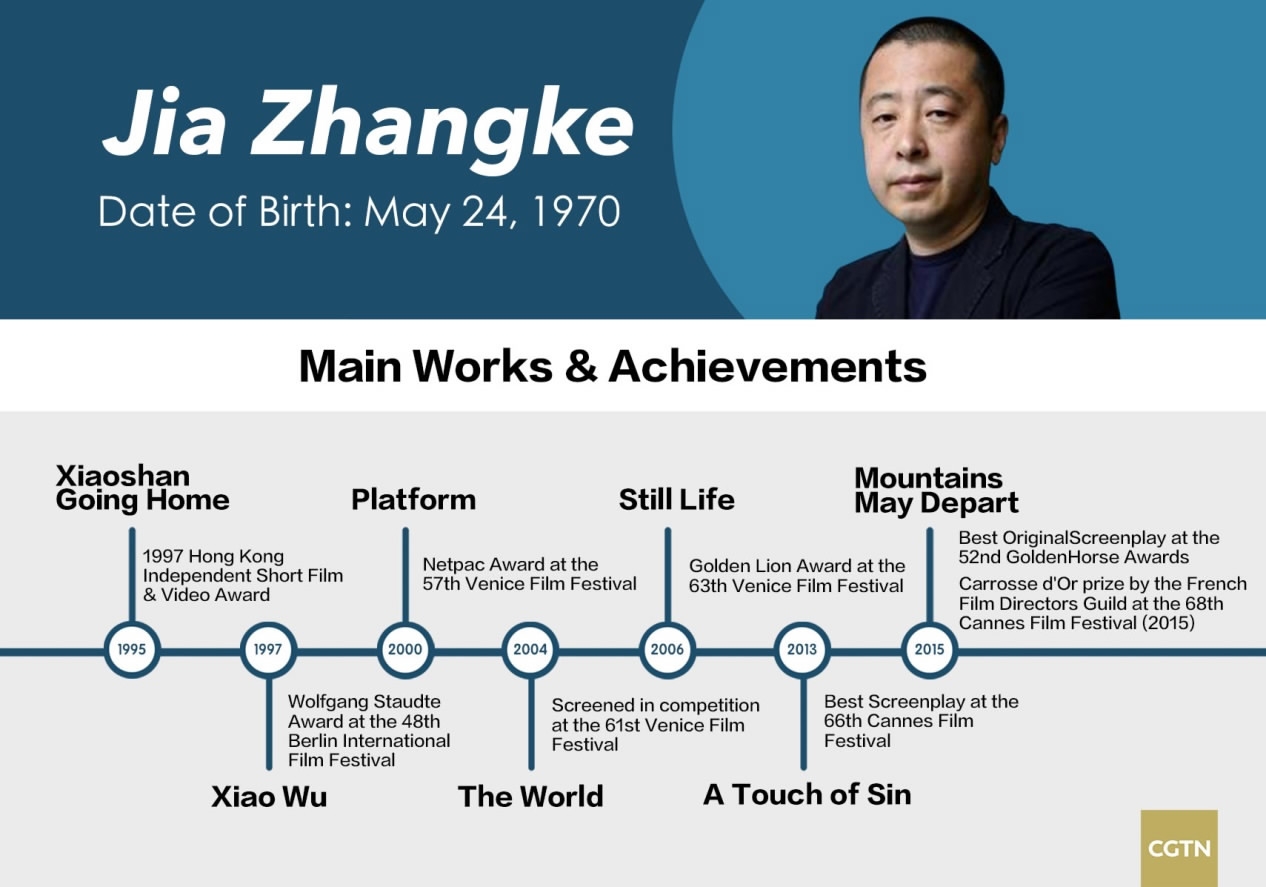
A glance of Jia Zhangke's works /CGTN Photo
A glance of Jia Zhangke's works /CGTN Photo
Jia's film career began early but it was not until 1995 that his talents was unearthed with “Xiaoshan Going Home”, a 57-minute short film which won the 1997 Honk Kong Independent Short Film and Video Award.
Three years later, “Xiao Wu”, Jia's first feature film came out and won the Wolfgang Staudte Award at the 48th Berlin International Film Festival.
Since then, Jia has become a regular figure at some the world's most prestigious film festivals including Cannes, Berlin and Venice, where arthouse films are heavily promoted. He won a Golden Lion Award for “Still Life” at the 63th Venice Film Festival, becoming the second Chinese director to win the award after Zhang Yimou.
He continued to win two best screenplay awards for “A Touch of Sin” in Berlin and “Mountains May Depart” in Taiwan.
First known as a realist, Jia has never ceased to challenge and reinvent himself. "The World" and "Still Life" exhibited surrealistic tendencies, while "24 City" developed into fact/fiction hybridity. "A Touch of Sin" showed Jia tackling with the true crime genre and "Mountains May Depart" saw him engaged in a full-blown emotional epic.
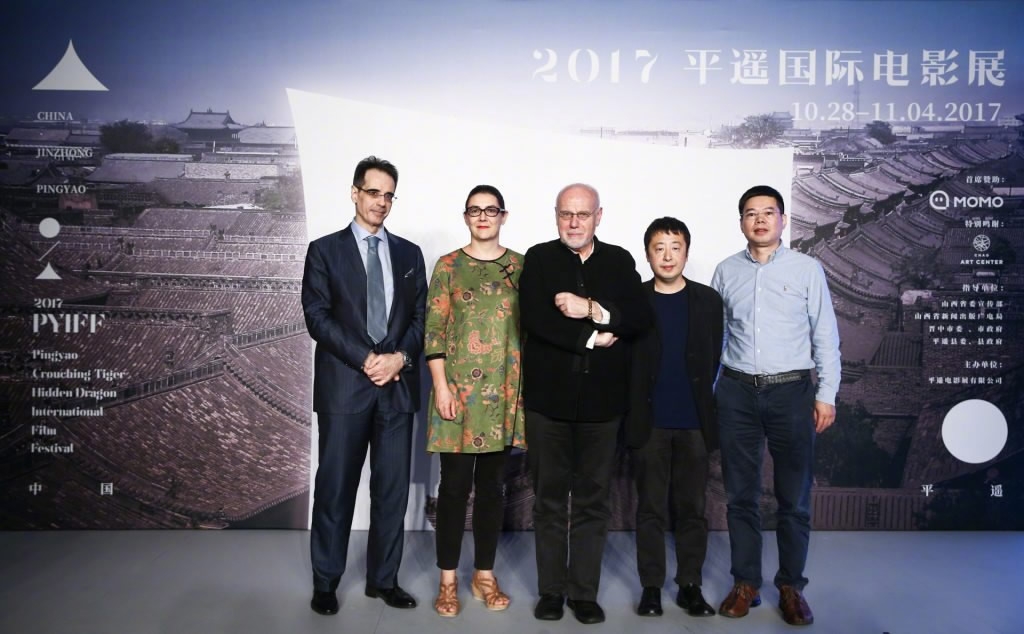
Jia Zhangke (2rd from R) and Marco Mueller (3rd from R) at the PYIFF /Global Times Photo
Jia Zhangke (2rd from R) and Marco Mueller (3rd from R) at the PYIFF /Global Times Photo
Since 2015, Jia has taken a two-year leave from Beijing as an escape and gone back to his hometown Fenyang where he conducted a regular life. "I usually wake up at eight or nine in the morning and take care of the company's business via Internet conferences. Two in the afternoon till sunset is for reading and writing while the night is for friends gathering. Day after another," Jia said in an interview with Tan Fei, a movie investor and executive producer.
It was during these two years the establishment of PYIFF was finally settled down.
Jia is currently working on two projects: "Ash in the Purest White" and "In Qing Dynasty" (official name to be unveiled).
Filming has begun for "Ash in the Purest White" which will feature Liao Fan and Zhao Tao. The film will be a crime-thriller which spans decades.
"Ash in the Purest White" is expected to be out in the latter half of 2018.
Review the live broadcast here:

SITEMAP
Copyright © 2018 CGTN. Beijing ICP prepared NO.16065310-3
Copyright © 2018 CGTN. Beijing ICP prepared NO.16065310-3